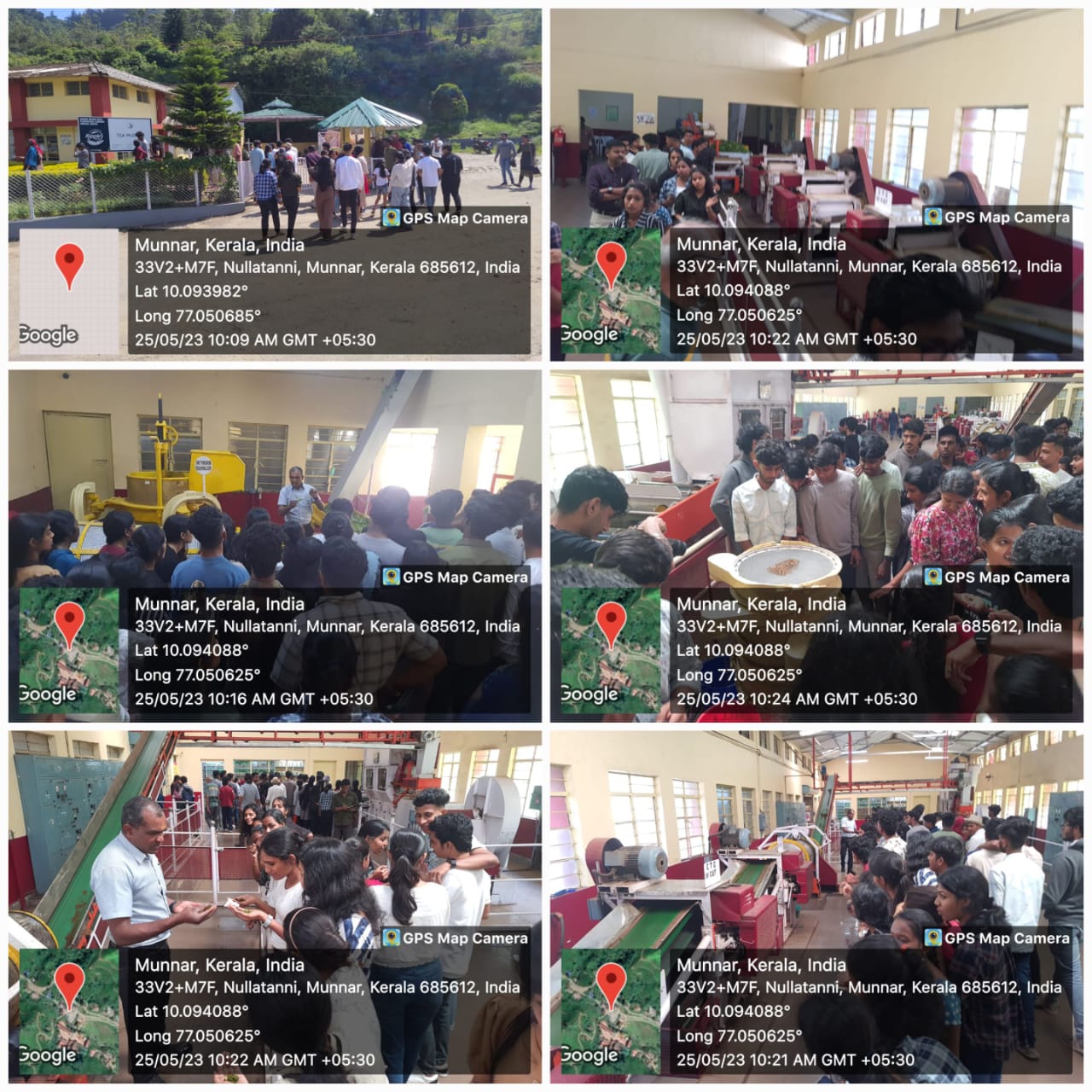INDUSTRIAL VISIT TO MUNNAR
 | |
|
REPORT ON THE INDUSTRIAL VISIT TO MUNNAR
B.COM FINANCE & TAX AND COMPUTER APPLICATION BATCH 2021-24
Teacher Coordinators : Smt. S. Gowri Antherjanam, Dr. Sujith A.S., Dr. Rahul Ramesh
Student Coordinators : Asish Rajeev, N R Nandakishore
The students along with the faculties of the department visited Tea Museum, Munnar and Kanan Devan Tea Factory at Mattupetty, on May 25, 2023. The visit helps the students to gain knowledge on the history and real-time exposure on the various processes through which one of the most prominent industries in the world delivers the key ingredient of one of the globally most sought beverages, domestic and abroad.
The group started off at 6:00am from the college in two buses, the Tax batch and Computer Application batch in each. After breakfast at Adimaly, the group arrived at the Tata Tea Museum, Nallathanni, Munnar. The group learned about the tremendous transformation of Munnar from an uninhabited stretch of forest land to a plantation town. The highlights of the museum included old machineries used for tea processing, photographs and some other curious displays that throw light on the efforts of some adventurous planters who dared to conquer the wild with minimal equipment and little resource.
The group reached it’s second destination by noon, which was the Kanan Devan Tea Factory, Mattupetty, Munnar. Previously known as the Kanan Devan Hills Plantations Company Private Limited (KDHP), has a lineage that dates back over 136 years to the British Colonial Raj era and was later succeeded by Tata Tea Limited. During the period 2004-2005, owing to a crisis in the tea industry, the Tata Tea Ltd restructured and came up with a proposal to transfer its holdings in the Kanan Devan Hills Village, resulting on the formation of Kanan Devan Hills Plantations Company. Being the largest employee-owned tea company in the world and the largest tea corporate in South India, the company also occupies a prestigious place on the tea map of Kerala, which further increases the relevance of visiting such a facility.
The factory produces mainly black tea in various grades for domestic supply as well as export The students found it quite informative as the staff explained and took them through various stages of tea processing such as withering, rolling, oxidation and drying, how the selection of leaves determines the type of tea from black, green or white and how processing changes with each of them respectively. Not only did the staff arranged a detailed audio-visual presentation, but also answered various queries from the students and showed the processing and the machineries in real-time from the viewing gallery. Some of the students purchased certain variety of teas and was astonished to know about the expensive yet the most healthy ‘White Tea’ displayed in the store.
Date:25-05-2023 |



